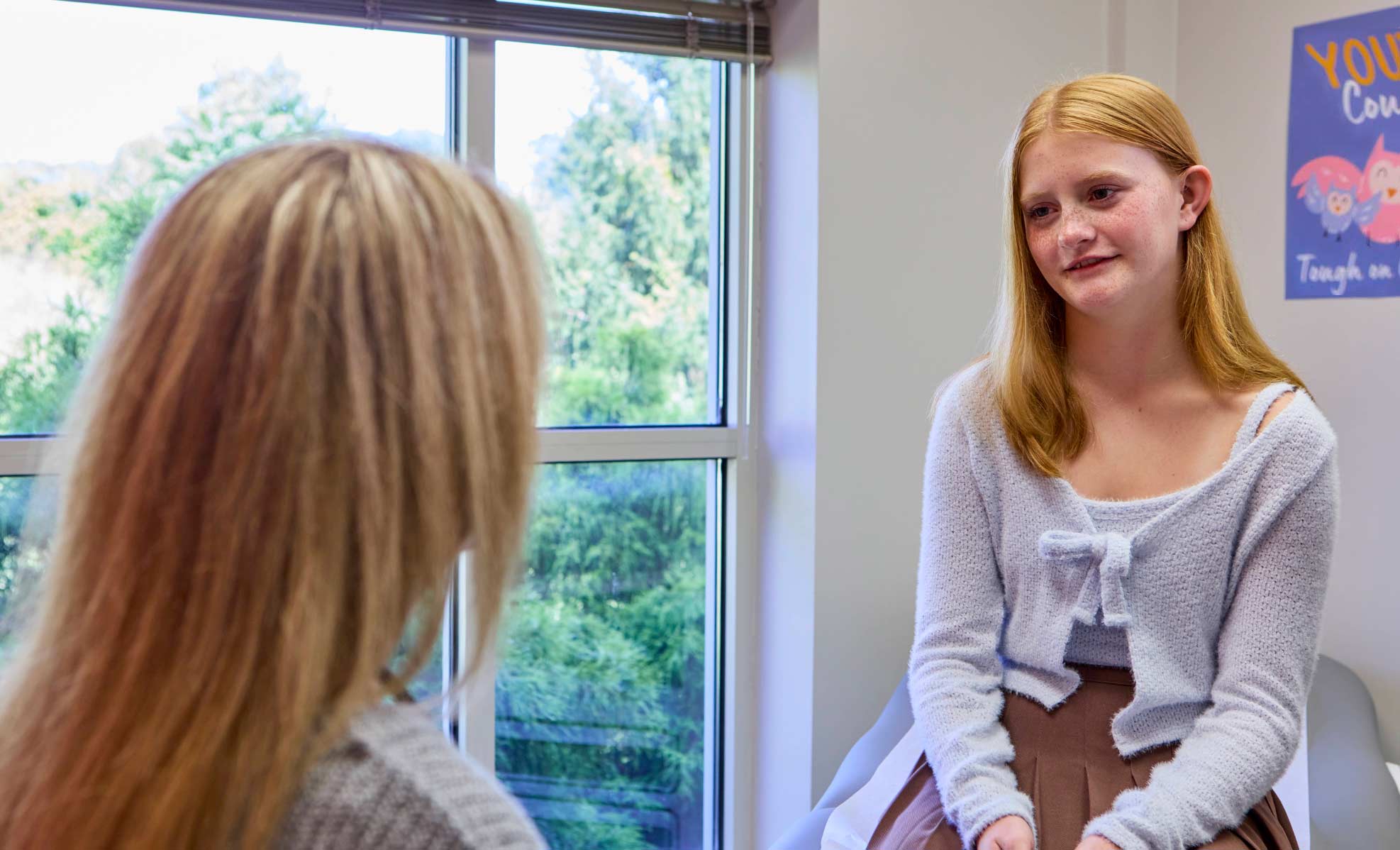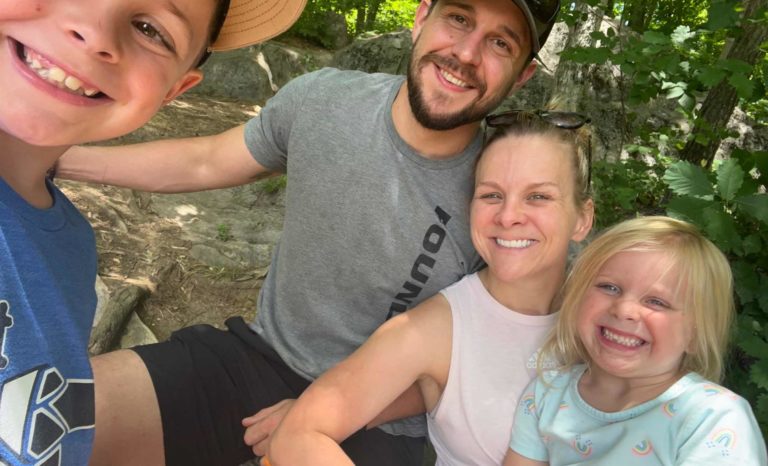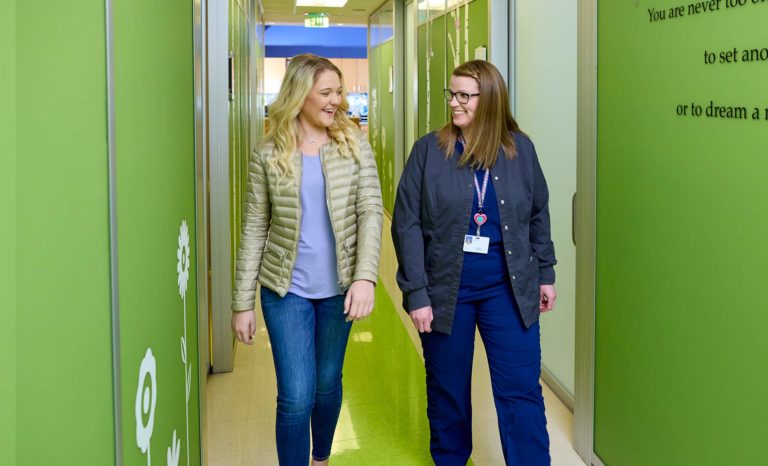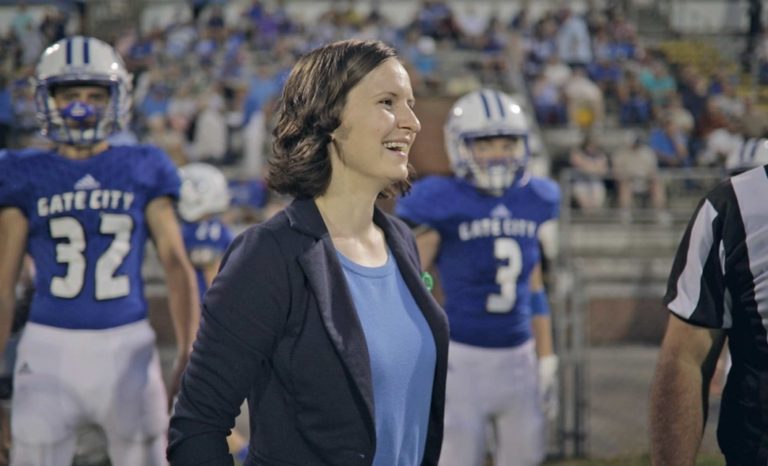Most parents know how important it is to prepare kids for kindergarten. What many don’t realize is that one of the most intense changes in a child’s life begins around the start of middle school.
 Interview: Brianna Lancaster, DO
Interview: Brianna Lancaster, DO
About a year before puberty, around age 11 or 12, a child’s brain begins a massive growth process. This milestone is so big because it isn’t just how their brain grows, it’s also how they are changing mentally, physically, and emotionally. This change continues until kids enter young adulthood.
Students entering middle school are also learning in different ways. For most of them, it is the first time they have different teachers each day. They may have harder subjects to study. Many students may be introduced to using lockers or to team sports for the first time. They’re also meeting new friends!
I like to tell my patients’ parents that this is a new time for them to learn, too. Parents still play an important role in guiding their child, but middle school is when kids start to rely more on their friends.
Signs of adolescence
Many changes that parents notice in their pre-teens are totally normal. Parents might see their previously shy kids wanting to talk and text more with friends, or spend more time on screens.
Kids may also start to notice changes in their body, like more hair, acne, or growth spurts. It’s also very normal for kids to become frustrated more quickly, be moodier, or even be more sensitive to wanting to talk to you.
It’s important to pay attention to how your child is coping with these changes. Work hard to keep open discussions with your pre-teen and watch for signs of depression or self-harm. If you see signs that worry you, reach out to Holston Medical Group or other trusted resources right away. We’re here for both you and your child!
How parents can help pre-teens
Now is the time to be a source of stability for your kids. But that doesn’t mean giving them more mandates. It means offering them more choices than they’ve had in the past. That way, you can help guide them to solve problems independently.
For example, instead of saying, “No screen time until after dinner,” ask: “Do you want screen time now or after dinner?” You could also let them help make meal choices during the week, so they know they have a voice in the family.
There are lots of other ways you can help your pre-teen through this milestone, too.
- Practice: Help them practice tough, new experiences. For example, you can role-play to help them through difficult conversations with friends. Or, if they’ll be using a locker for the first time, buy a lock for them to practice opening at home before the first day of middle school.
- Be encouraging: As you guide them through mistakes, teach them to be their own best advocate. It might seem easy to step in to fix a problem for them, but make sure they are given the chance to fix it first.
- Support participation: Encourage them to join after-school activities or clubs that expose them to new things.
- Monitor screen time: Limit non-school screen time to 1-2 hours a night. Make sure you know the social media platforms your child uses and how they work. Talk to your child about their pros and cons.
- Ask questions: Always ask open-ended questions about what they are learning and their day. Instead of asking: “Did you pass your test?” consider questions like, “How do you think you did on the test?” or “What was the best part of your day?”

One reason I’m so excited to join the Holston Medical Group family is because our team of providers are here through it all for you—even when parenting your pre-teen gets tough. If you have any questions about your child’s growth or behavior changes, come see me in my new office at HMG Pediatrics at Abingdon.
Whether your child is going to school for the first year, the last year, or is headed to middle school, we’ll help you navigate these stepping stones. You can find a provider nearest to you at one of HMG’s facilities or call 1-877-HMG-1213.
For more information about our HMG specializations, including pediatric care, be sure to subscribe to our blog.









